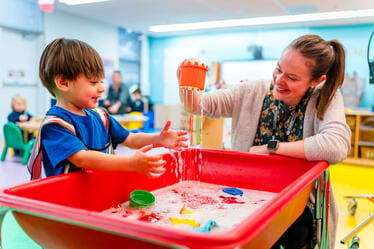At the
British International School of Washington, we are proud to support students through some of the most formative years of their educational journey - particularly during the IGCSE and IB Diploma stages. These years are academically rigorous, intellectually stimulating, and rich in opportunity. They are also a critical time to begin thinking ahead to university pathways, whether in the UK, the US, or internationally.
One of the most important lessons our students learn during this period is how to balance the demands of academic study with the value of extracurricular involvement. This balance not only contributes to personal growth and well-being - it also helps shape a compelling and well-rounded university application.
Academic Excellence with Purpose
The IGCSE years, typically beginning in Year 10, form a strong academic foundation. Students engage with a broad range of subjects, developing critical thinking and analytical skills that will serve them well in the IB Diploma Programme. By the time students enter the IB in Year 12, they are ready for a challenging curriculum that emphasises independence, inquiry, and global awareness.
But as any seasoned educator will tell you, success at this level is not just about academic achievement. Universities today are looking for more than grades - they want to see students who demonstrate initiative, resilience, and a genuine commitment to their broader community.
The Role of Extracurriculars in College Preparation
Extracurricular activities - whether through sports, music, volunteering, student leadership, or creative pursuits - allow students to explore their passions, develop key soft skills, and show commitment beyond the classroom.
For our students at BISW, these experiences are not just encouraged - they are embedded within the IB Diploma through CAS (Creativity, Activity, Service). However, they begin long before the IB years. I often advise students to think strategically: pursue activities you enjoy, but also those that align with your potential college goals. For example:
A student interested in medicine might volunteer regularly in a healthcare setting.
An aspiring engineer could engage with robotics, coding clubs, or STEM competitions.
A future humanities student might lead in Model United Nations or take on editorial responsibilities for the school paper.
Quality and consistency of involvement often matter more than quantity. Admissions teams are more impressed by depth of commitment than by a long list of fleeting interests.
Developing Balance Through Planning
Of course, none of this is possible without effective time management. I encourage all students to build and follow a clear weekly routine that includes study time, extracurriculars, and - just as importantly - rest. The IB in particular teaches students to be reflective and self-aware; these are vital skills when learning how to manage competing priorities.
Our teaching and pastoral teams at BISW work closely with students to help them find this balance. We offer guidance on managing workloads, support through academic tutoring, and regular check-ins to ensure well-being is always at the forefront. We also encourage early engagement with our college counsellor, especially as students begin to narrow down subject choices in the IB that may affect university options.
A Balanced Student Is a Prepared Student
Ultimately, balancing academics and extracurriculars is not about doing everything - it’s about doing what matters, doing it well, and knowing when to ask for support. At
BISW, we are deeply committed to nurturing students who are not only academically capable, but also confident, curious, and compassionate global citizens.
As Head of Secondary, I see every day how powerful it is when a student discovers the right balance - one that allows them to thrive in the classroom and flourish beyond it. These are the students who leave us not only ready for university, but ready to lead, contribute, and succeed wherever their journey takes them.
- Dr. Neela Choudhury
.jpg?h=3648&iar=0&w=5472&rev=850136caf58142ce98008ec09c2f18b8&hash=0F1B5B7EAE293D3BCB0F703017DED554)
